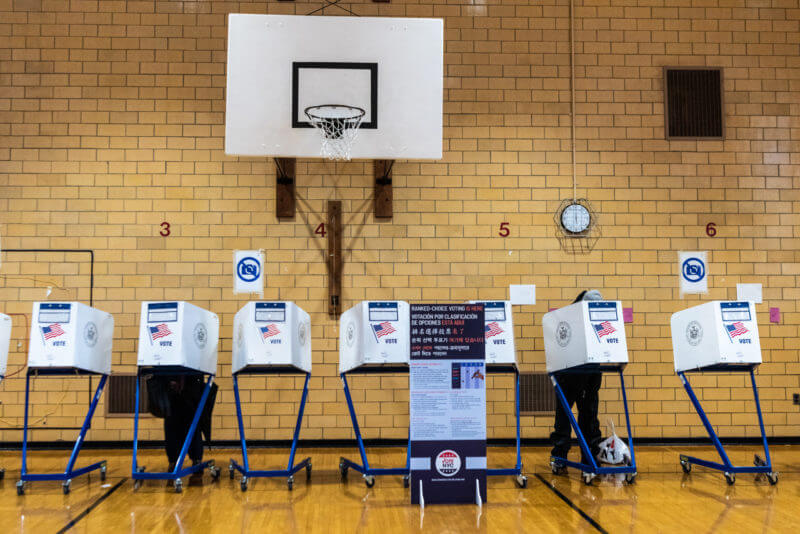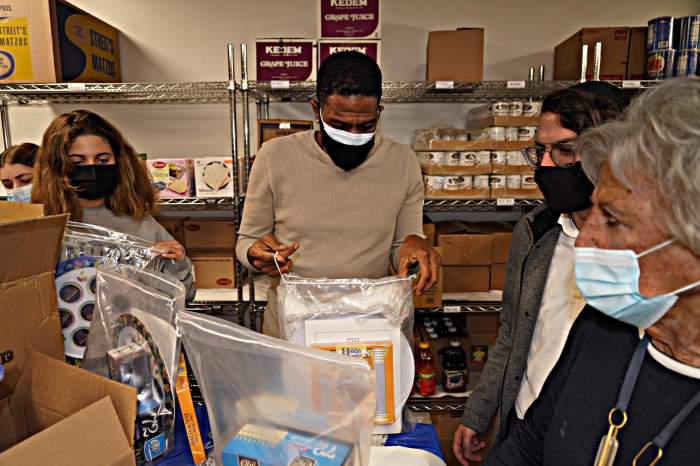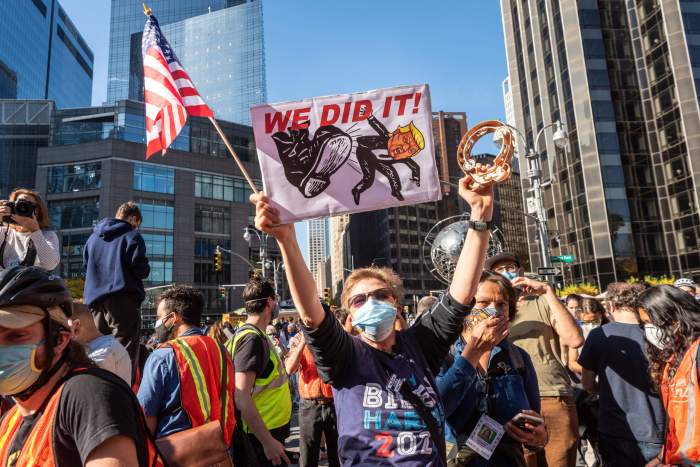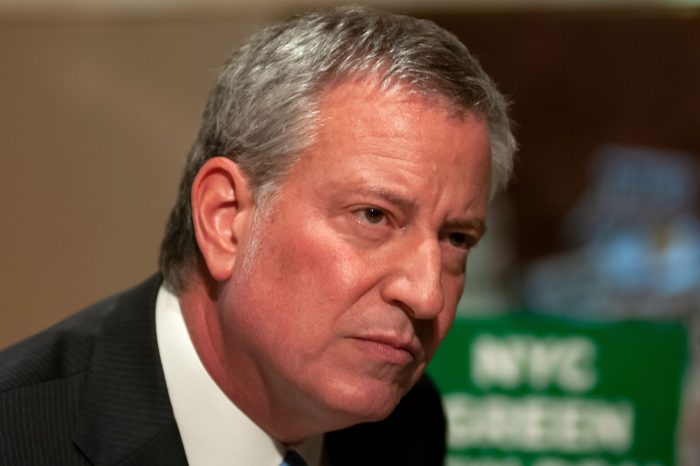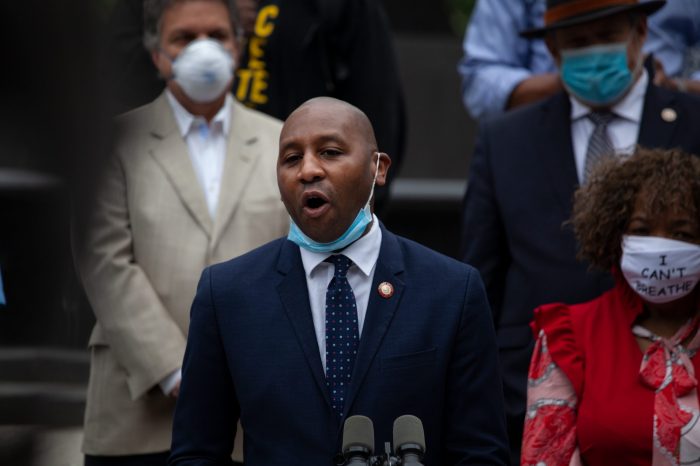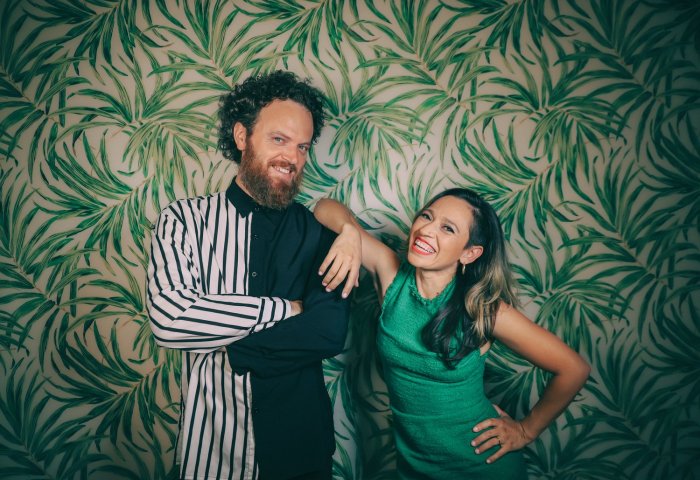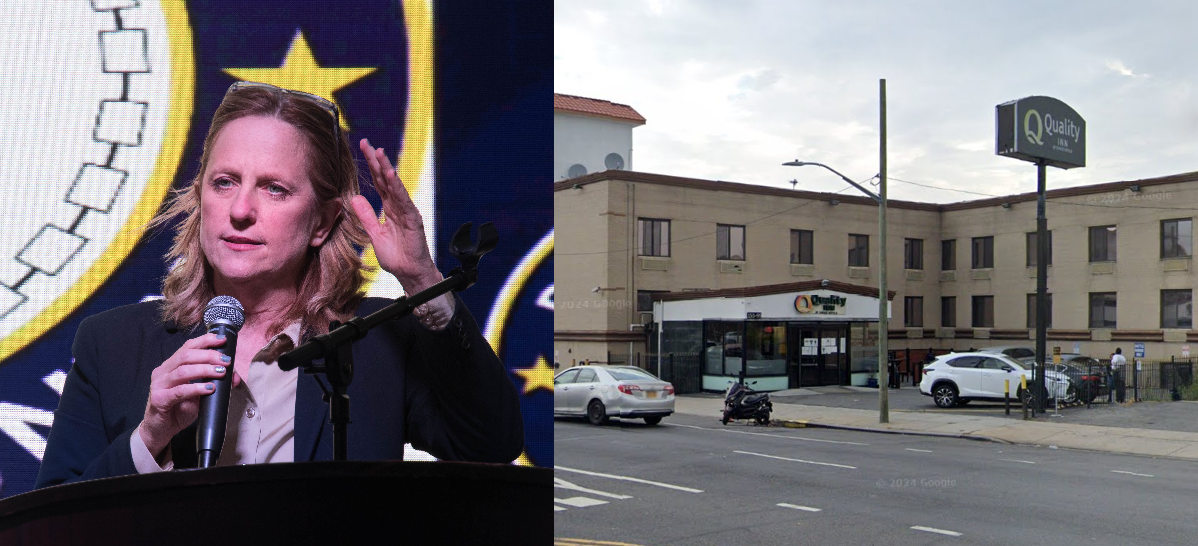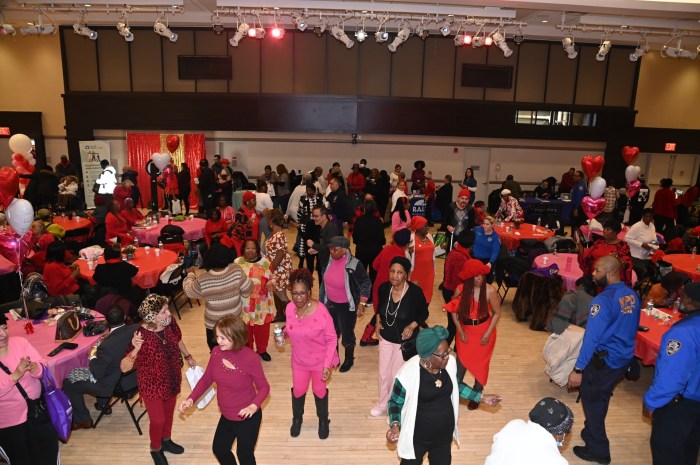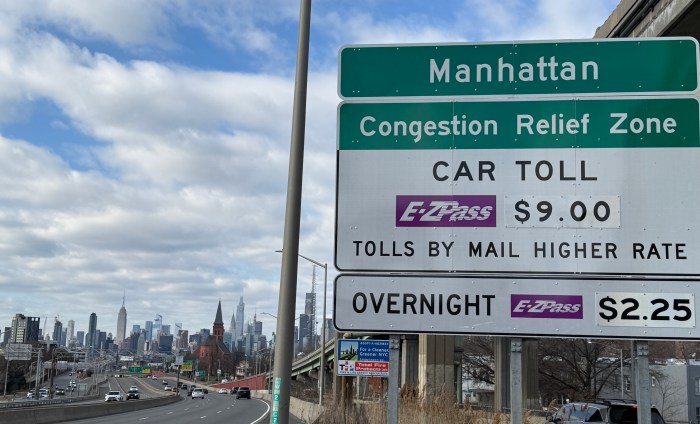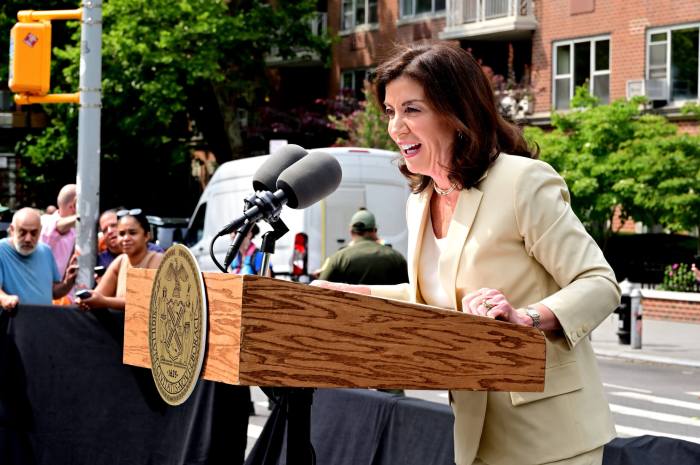Early voting starts this Saturday in the Nov. 2 general election that will see voters make the final call on who will run New York City for the next four years.
Though much of the attention was focused in June on the ranked-choice Democratic primary in a city and borough that is solidly blue, the general election remains the ultimate decider. New Yorkers will elect a new mayor and comptroller; the incumbent public advocate, Jumaane Williams, is seeking a full four-year term in office; and every City Council seat will be up for grabs.
Manhattanites will also be asked to choose a new borough president to replace the term-limited Gale Brewer; and a new district attorney to succeed the outgoing Cy Vance Jr. Several judgeships are also on the ballot, though Democrats are the only candidates in the contests.
All New York City voters will also be asked to vote yes or no to five ballot questions focused on election reform, redistricting, the environment and monetary limits for civil court claims.
Unlike the ranked-choice primary in June, all voters in the general election will be asked to choose just one candidate in each contest (though, in some judicial races, they may be asked to vote for two). Take care to follow the instructions on the ballot, as multiple votes in the same race may result in ballot disqualification.
The early voting period begins at 8 a.m. on Saturday, Oct. 23, and runs through 5 p.m. Sunday, Oct. 30. To find your early voting site, visit vote.nyc.
Here’s who’s on the Manhattan ballot:
Mayor
The mayor’s race sits at the very top, and though there are nine different candidates in the contest, the Democratic nominee — Brooklyn Borough President Eric Adams — is the overwhelming favorite to win election in a city where Democrats outnumber Republicans by an 8:1 margin.
Adams’ most prominent rival is the Republican nominee, Guardian Angels founder, talk show host and Upper West Side cat lover Curtis Sliwa. In addition to having the Republican nomination, Sliwa’s also running on the Independent ballot line.
Seven other third-party candidates are in the mayoral field: Conservative nominee Bill Pepitone, a retired cop from Staten Island; Catherine Rojas, a Queens resident on the Socialism and Liberal line; Stacey Prussman, a Brooklyn resident and Libertarian Party nominee; Fernando Mateo, Sliwa’s defeated rival in the Republican primary, who’s running on the Save Our City ballot line; Raja MIchael Flores of Kips Bay, who’s on the Humanity United ballot line; Skiboky Stora of Chelsea, running on the Out Lawbreaker line; and Quanda S. Francis of Brooklyn, who’s on the Empowerment ballot line.
The mayoral election winner will succeed the term-limited Bill de Blasio as New York City’s 110th mayor on New Year’s Day 2022.
Public advocate
Though he’s reported to have his sights set on a possible gubernatorial run next year, Jumaane Williams is seeking a full-four year term as the city’s public advocate in the Nov. 2 general election. The Brooklyn Democrat is expected to win re-election easily over there challengers: Republican nominee Dr. Devi Elizabeth Nampiaparampil, a Financial District physician also running on the Save Our City ballot line; Anthony Herbert, a Brooklyn community advocate running on the Conservative and Independent ballot lines; and Libertarian Party nominee Devin Balkind of the East Village.
City Comptroller
Brooklyn City Council Member Brad Lander is another Democrat expected to be victorious in the Nov. 2 election, as he seeks to succeed the outgoing Scott Stringer as New York City’s financial watchdog. He, too, faces three challengers: Republican candidate Daby Benjamine Carreras, an East Harlem resident also running on the Save Our City line; Paul A. Rodriguez of Brooklyn, running on the Conservative line; and John A. Tabacco Jr., a Staten Islander running on the Libertarian/Independent line.
Borough President
City Council Member Mark Levine of Washington Heights is poised to become the next Manhattan borough president, succeeding Brewer next year. The Democratic nominee is facing challenges from Louis Puliafito, an Upper East Side doorman running on the Republican line; and Libertarian Michael Lewyn of Midtown.
District Attorney
The race to succeed Vance as Manhattan’s chief prosecutor comes down to two candidates: Democrat Alvin Bragg of Harlem, the former chief deputy attorney general of New York; and Republican Thomas Kenniff, a former judge advocate general and prosecutor currently practicing law in Lower Manhattan.
City Council
Democratic candidates are heavily favored to win election to Manhattan’s 10 City Council seats, and in many instances, will succeed term-limited incumbents. Here’s a breakdown of each race by district and neighborhood:
District 1 (Battery Park City, Civic Center, Chinatown, Financial District, Little Italy, the Lower East Side, NoHo, SoHo, South Street Seaport, South Village, TriBeCa & Washington Square): Democratic nominee Christopher Marte is from the Lower East Side and works as the New York State Director at Arena, using his experience running for office to train a new generation of candidates and campaign staffers. He’s facing Republican candidate Jacqueline Toboroff, a Tribeca resident and fashion designer; and Independent NY candidate Maud Maron, who had previously run in the Democratic primary, and is a Community Education Council member from SoHo. The winner succeeds the term-limited Margaret Chin.
District 2 (East Village, Gramercy Park, Kips Bay, Lower East Side, Murray Hill, Rose Hill): City Council Member Carlina Rivera is expected to win her second term in office. She faces two opponents: Juan Pagan of Alphabet City, running on the Independent Line; and Allie Ryan of the East Village, running on the Neighborhood line.
District 3 (Chelsea, Hell’s Kitchen, Greenwich Village, West SoHo, Hudson Square, Times Square, Garment District, Flatiron, Upper West Side): Democratic nominee Erik Bottcher is running unopposed and will succeed the term-limited Corey Johnson, whom he works for, as the district’s representative next year.
District 4 (Upper East Side, Carnegie Hill, Yorkville, Central Park South, Midtown East, Times Square, Koreatown, Stuyvesant Town and Peter Cooper Village, Waterside Plaza, Tudor City, Turtle Bay, Murray Hill, Sutton Place): City Council Speaker Keith Powers is seeking a second term in office, and is projected to turn back the challenge of one rival: Republican/Independent/Libertarian nominee David Casavis of the Upper East Side.
District 5 (Upper East Side’s Yorkville, Lenox Hill, Carnegie Hill, Roosevelt Island, Midtown East, Sutton Place, El Barrio in East Harlem): Former New York City Census Director Julie Menin, the Democratic nominee, is facing Republican/Liberal candidate Mark Foley, a real estate consultant. Both candidates are from the Upper East Side. The winner of the race will succeed the term-limited Ben Kallos.
District 6 (Central Park, Lincoln Square, Upper West Side, Clinton): What’s old is new again for Gale Brewer, who’s poised to return to her former City Council seat after being term-limited as Manhattan borough president. The Democratic nominee is facing Republican challenger Nancy Sliwa, wife of Republican mayoral nominee Curtis Sliwa. The winner will succeed term-limited City Council Member Linda Rosenthal.
District 7 (Manhattan Valley, Manhattanville, Morningside Heights, Hamilton Heights): Democratic nominee Shaun Abreu of Manhattan Valley is favored to win the seat currently held by the term-limited Mark Levine. He’s facing challenges from two rivals: Jomo Manual Williams of Harlem, running on the Black Lives Matter Party, and Carmen R. Quinones of the Upper West Side, who ran in the Democratic primary and is continuing her campaign on the Black Women Lead ballot line.
District 8 (El Barrio/East Harlem, Mott Haven, Highbridge, Concourse, Longwood, Port Morris): City Council Member Diana Ayala, a Democrat, is running unopposed and assured a second term in office.
District 9 (Central Harlem, Morningside Heights, Upper West Side, East Harlem): Democratic nominee Kristin Richardson Jordan of Harlem is facing Republican challenger Alphesus Marcus, also of Harlem. The winner will succeed the outgoing City Council Member, Bill Perkins, whom Jordan defeated in the Democratic primary.
District 10 (Washington Heights, Inwood, Marble Hill): Assemblywoman Carmen De La Rosa is expected to easily win election to the seat. She faces Republican challenger Edwin de La Cruz in the contest to succeed the term-limited Ydanis Rodriguez.
Early voting
You can cast your ballot in the Nov. 2 general election beginning on Saturday morning. You must visit your designated early voting polling site; there are 20 locations across Manhattan. To find your early voting site, use the New York City Poll Site Locator at findmypollsite.vote.nyc.
Hours of early poll site operation are as follows:
Saturday, Oct. 23: 8 a.m. to 5 p.m.
Sunday, Oct. 24: 8 a.m. to 5 p.m.
Monday, Oct. 25: 7 a.m. to 4 p.m.
Tuesday, Oct. 26: 10 a.m. to 8 p.m.
Wednesday, Oct. 27: 10 a.m. to 8 p.m.
Thursday, Oct. 28: 10 a.m. to 8 p.m.
Friday, Oct. 29: 7 a.m. to 4 p.m.
Saturday, Oct. 30: 8 a.m. to 5 p.m.
Sunday, Oct. 31: 8 a.m. to 4 p.m.
Here are the locations of the 20 early voting sites in Manhattan:
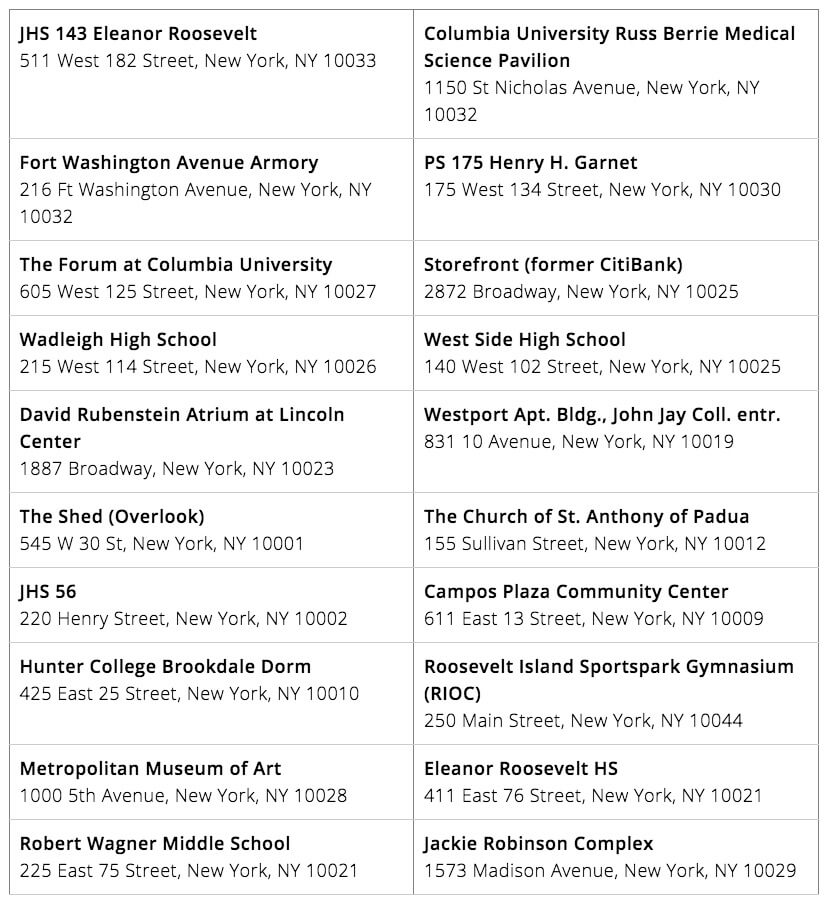
If you can’t make it to early voting, you can cast your ballot on Election Day, Nov. 2, at your designated polling place from 6 a.m. to 9 p.m. Locate your polling place at findmypollsite.vote.nyc.



